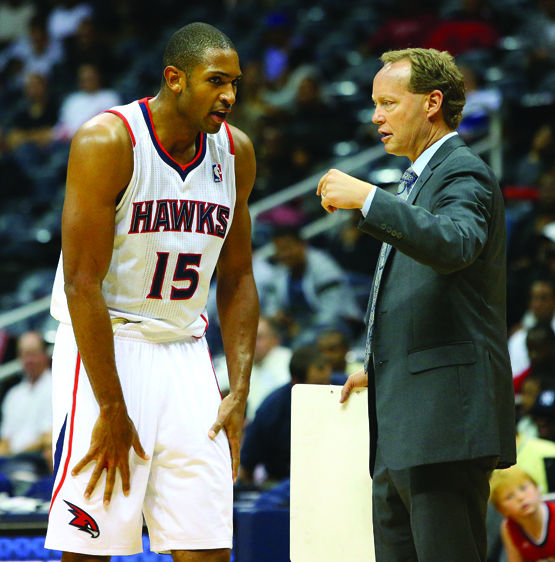Latest NBA scandal raises questions about prejudice

September 9, 2014
We’ve seen all of this before.
Just months ago, a phone recording revealed former Los Angeles Clippers owner Donald Sterling making extremely demeaning remarks about minorities. The story dominated headlines, and it was an uncomfortable and sickening reminder of a fact that many know to be true but don’t like to discuss: racism still exists.
Now, Atlanta Hawks owner Bruce Levenson is selling his shares of the team after self-reporting that he had sent a racist email in 2012.
The news of Levenson’s email, in which he essentially said he valued white fans more than black fans, was another reminder of the racism that still permeates sports culture.
The NBA seems to know exactly how to react. Commissioner Adam Silver called for Sterling’s removal as owner when the phone recordings leaked, and now Levenson will sell his shares of the team after he self-reported his racist email to the NBA. This isn’t a good look for the NBA, but the league’s reaction to the incidents shows that Silver is proactive.
The league has decided that it will not accept racist attitudes in any capacity, and if racism is expressed in any way, there will be very harsh consequences.
Not only is the league proactive, but it’s also — relative to other sport leagues — more progressive in its approach to racial issues. It’s definitely possible that other leagues cover up racial issues because they’re hard to face. It’s also possible that leagues simply ignore them as a matter of convenience.
For example, the Atlanta Braves are moving away from downtown Atlanta and are in the process of building a new stadium in the predominantly white suburbs of Cobb County.
According to team officials, the move is purely to improve business. While that may be partly true, the move also represents the racial tension present in Levenson’s email.
In his email, Levenson said that “black fans don’t have the spendable income” that white fans do and later commented on how he valued the white fans more than the black fans.
Apply this thinking to the Braves’ move to the suburbs. The MLB doesn’t seem to care about the racial undertones of the move. On the other hand, based on the NBA’s reactions to Sterling and Levenson, it doesn’t seem that the league would favor such a decision were it to happen in basketball rather than baseball.
It’s significant that the NBA is responding to racism like this, especially because many don’t know how to react to such a sensitive topic. But it’s important to also consider whether or not the NBA is reacting appropriately.
While the NBA is sending the message that any form of racial intolerance is unacceptable, the league’s actions aren’t encouraging racial equality effectively. With their jobs on the line, owners and front-office executives have been looking long and hard through past memos, emails and videos to see if there is evidence of any racist sentiment. Rather than questioning and changing personal beliefs, they focus on cleaning up their pasts.
Owners and executives are not encouraged to promote racial equality because it’s right, but because their jobs are on the line if they don’t. But what else can the NBA really do? The league can’t knowingly keep individuals who express racist beliefs in their league but, at the same time, it would be difficult or even unrealistic to force people within the league to change their views.
So what can we do? Removing Levenson is a start.







